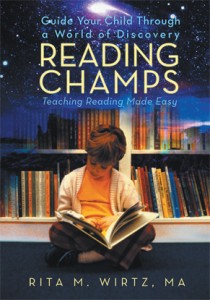
Go Ducks! Holidays and the big Eugene game are over. Teachers everywhere are writing lesson plans while I finish this post which I started and deleted many times already. I am now stuffed, hearing Norman The Worm (U Tube) in my head, and Frozen is screaming out at me. Yikes.
Since I believe all children learn best, differently, mini lessons are the perfect answer to meeting the literacy goals of Common Core. I like the intent of Common Core, universal standards of excellence for America’s children, but the already “left behind” children, I call “gap kids” have a long way to go to catch up. So what I can do, is help you put together foundational mini lessons which help a whole class, second language learner, Title I, Resource, or one- on- one homeschooler catch up or get ahead. I believe that reading programs and assessment models come and go, but skills remain the same. I have seen it all, believe me, in more than forty years of teaching reading, developing curriculum and about six retirements.
Despite my bad Spanish, I taught in ELL (English as Second language) and immersion border schools in San Ysidro, Ca. I trained Migrant Education and Mini Corps organizations, and worked under Title VII Grants. Interesting, I also taught school administration in the Bilingual Cohort at CSUS, Sacramento. The late, amazing Dr. Armando Ayala was my mentor. Ralph Bonds, a gifted teacher, worked with me at a Sacramento school and in the Summer CSUS Bilingual Institute for two years. Other than teaching word families, I never had a problem using my simple fundamental reading building blocks with students of any other languages. Don Werve is the linguistics expert who assisted with my new book. BUT
Diverse voices means more than bilingual. All our children have diverse voices. They want to be heard. They tell us how to teach them by watching how they track print, acknowledging their learning styles and matching their interests with our curriculum, which has to be fluid, ever changing. A spiral curriculum works best, skill at a time, moving upward, but the basics must be mastered. And that is the challenge of Common Core. While the lofty end goals make sense, getting there is the challenge. Testing is under fire, but I am not reading as much about teachers having to teach the same things the same way at the same time. That’s not exactly Dewey. Let’s focus this post on getting ready to teach, since it’s the New Year.
First, make sure you are using a balanced literacy program, regardless of grade level. This includes:
- Upgrade your print and language rich environment.
- Read to students.
- Model reading strategies.
- Use Language Experience.
- Use DRA’s. Directed Reading activities.
- Include independent reading.
- Focus on writing, (process) and just for fun variety.
- Make sure spelling and vocabulary go hand in hand.
- Speaking and listening round out the curriculum.
Next, here’s my Easy Start mini lesson format: (phonics example)
- Review the previous sound, letter or concept.
- Determine the schema, or background knowledge.
- Add in the new sound, letter or pattern, or concept.
- Find the new element in other print or media.
- Practice writing and spelling the letter or word.
- Extend the mini lesson with more practice.
Keep this lesson short, no more than 15-20 minutes. Do a chunk of the lesson if more time is needed, and be prepared to repeat the lesson, as needed, or parts of the lesson. Each lesson must have a SET or opener, MIDDLE and a ClOSE.
A reminder, all lessons should be based on the classic Bloom’s Taxonomy. Knowledge: State basic facts. Comprehension: Understand the concept. Application: Use the information. Analysis: Check the parts. Synthesis: Put information together. Evaluation: Form an opinion.
When I plan any lesson, here’s how I do it.
- What is the lesson about?
- What does the student already know?
- What needs to be learned? (Objectives)
- What resources do I need to gather?
- Hw much time should I allow?
- Strategies I’m using.
- Lesson chunks: SET (the hook, or connection); MIDDLE; CLOSE; EXTENSION.
- Did it work? What’s next?
THINK IT; PLAN IT; TEACH IT; CHECK IT!
INTRODUCE; TEACH; REINFORCE; CHECK.
This post is dedicated to teachers, parents and caregivers making a difference in the literacy lives of children. Thank you for listening to my diverse voice. Leaving footprints on your reading hearts this new year, Warmly, Rita
Follow me on Twitter and like me on Facebook!

